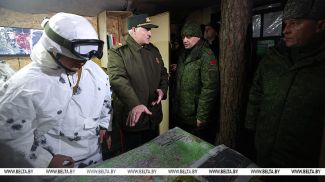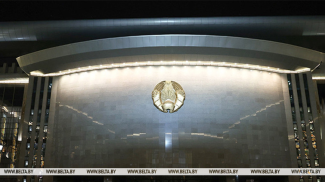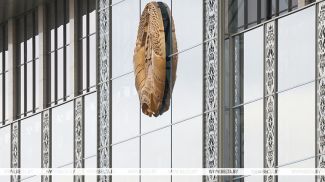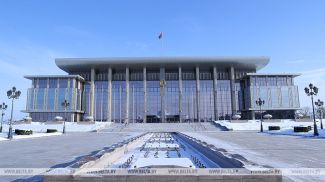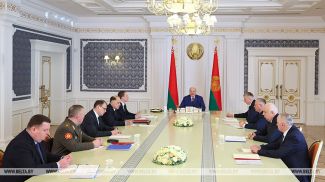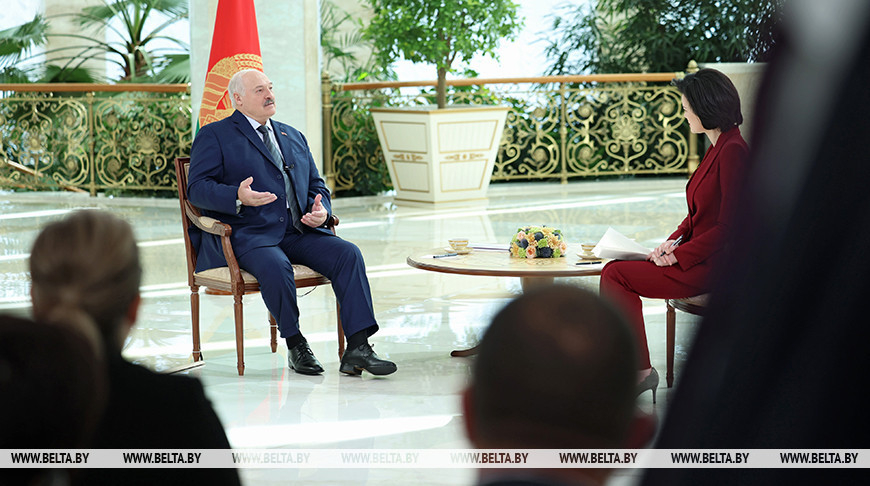
MINSK, 29 August (BelTA) – Belarusian President Aleksandr Lukashenko said in an interview with China Media Group how Belarusians acted in the Chinese manner when choosing between East and West, BelTA has learned.
Answering a question about how he sees the future of Belarus, the head of state pointed out that our country is historically and geographically located between East and West, and therefore it is always being pushed to choose one side or the other. This was felt especially acutely in the period after the collapse of the Soviet Union.
“Back in the day, after the collapse of the Soviet Union (I often talk about it) Belarus was the most Soviet republic. It was the most devoted republic as part of the Soviet Union,” the president noted. “Our nation is international. It is accustomed to living in peace and accord.”
In the early 1990s, the economy of Belarus found itself in a difficult position due to the destruction of cooperative ties. After all, components and resources used to come the country from Russia, Kazakhstan, Ukraine, and the Baltic states. In Belarus, the final product was created for sale inside the Soviet Union and beyond its borders. “By the way, it explains the high level of intellectual, educational development of our nation, because we created an end product: tractors, automobiles, agricultural products, chemistry, petrochemical products, and so on. Everything was geared towards creating apparel, footwear, end products,” the head of state explained. He pointed out that the goods produced in Belarus were of the highest quality, because otherwise they simply would not have been purchased abroad.
The disruption of all established supply chains was very painful both for the economy and for the country as a whole. At that time, the question of choice arose acutely - in which direction to move next, along which path to develop the country. “Nationalists like the ones that plunged Ukraine into a war, by the way, shouted: “We don’t need China. We don’t need Russia. We need our own way. If something happens, we will cooperate with Poles or with Americans,” the president recalled the past events. “If we had not acted in the Chinese way, if we had embraced the West back then, we would have no country now. It would have simply fallen apart. We would have no economy. And like some of the post-Soviet republics we would have these color revolutions all the time. It would be a gift for the West.”
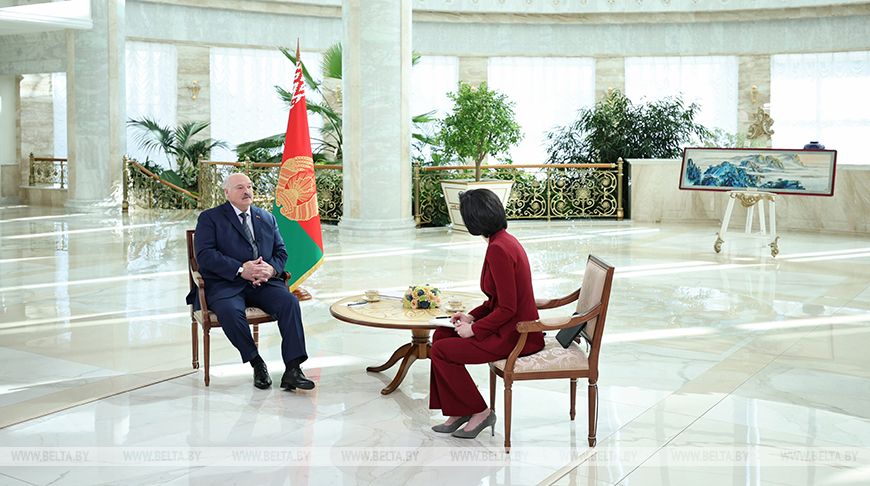
Aleksandr Lukashenko emphasized that Belarus, when faced with a difficult choice, acted, figuratively speaking, in the Chinese manner, that is, calmly, thoughtfully, without sharp revolutionary decisions. “After calming down we realized that we shouldn’t abandon what we have. We have to develop it, perfect it, modernize it. And we shouldn’t lose our friends that supplied raw materials and resources to us. And we shouldn’t lose our markets where we sold these products,” the president said. In his words, it is precisely in this manner that Belarus should develop further: quietly, calmly, without any sudden leaps, evolutionarily.
According to the head of state, the complicated situation in which Belarus finds itself due to geographical and historical reasons was even noted by U.S. President Donald Trump in a recent telephone conversation. “No other country in the world is in such a complicated situation we are. When Donald and I talked [over the phone on 15 August], we spent about 35 minutes on discussing some problems. I guess he had not intended to have such a conversation, but we talked for too long and he dropped a phrase: “I wish you success.” He said that Belarus is in such complicated location and in such a complicated period that only a strong leader can handle it,” Aleksandr Lukashenko shared the details of the phone talks.
“I guess he had been looking into the situation, had been made familiar with Belarus, had seen that things are complicated for us: in the east, in the west, a war in the south, and those crazy Baltic neighbors in the north. He agreed with that and said that Belarus is in a very complicated situation,” the head of state added.




